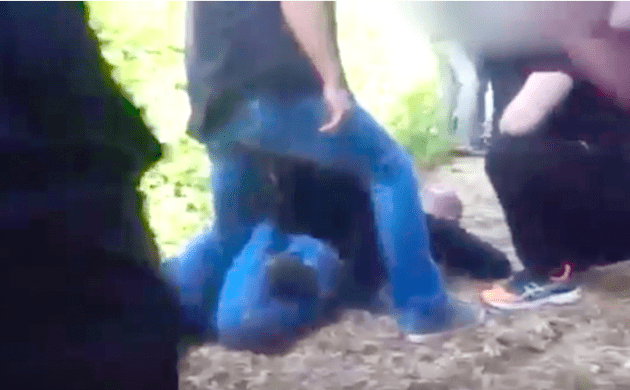A disturbing video recently surfaced online appearing to show three men identified as staff at a Næstved refugee camp manhandling an asylum-seeker, roughing him up and forcefully pinning him to the ground. One of the staff seen in the video assaulting the 34-year-old asylum seeker was the head of the refugee
centre.
Like the Wild West
While many were shocked by the video, a lot of asylum-seekers were not. Many of them suffer silently in the camps. If you speak to any asylum-seeker or refugee who has spent considerable time at the asylum centres, you will hear of conditions that can only be compared to the Wild West.
The accounts are harrowing, often including mental torture and sexual harassment – either by fellow residents at the centres or the staff. There have even been cases where the police have been called in and used brutal force that has resulted in serious injuries and the hospitalisation of some asylum-seekers. Yet no-one takes note nor speaks up against these serious violations of rights. Why?
Systemic marginalisation
First, asylum-seekers have been systematically marginalised and instilled with a fear of deportation, threats and unnamed consequences.
For many who live at the asylum camps, rights are not part of their daily lingo. They believe their fate hangs at the mercy of the rest of society, which defines what they – asylum-seekers – can and can’t do.
The current right-wing political sphere has made matters worse by demonising asylum-seekers and newly-arrived refugees at every opportune moment.
Marooned by the system
Secondly, our society seems to have two kinds of justice systems: one for the people defined as citizens – Danish natives and those with residence permits – and another for refugees. Natives and holders of residence permits have all kinds of avenues to seek redress whenever they have grievances, whether it be courts, unions and the ombudsman.
But while the asylum-seekers can theoretically do the same, the truth is they don’t. It’s either because they don’t know such avenues exist or due to practicalities of location – refugee camps are mostly located a fair distance from administrative centres – or language, as a good number of the asylum-seekers have limited opportunities to learn Danish or English and be able to voice their concerns.
Complicit in the crime
While we believe we live in a democratic society that respects individual rights and liberties, our treatment of refugees and asylum-seekers is appalling. Several international human rights groups and UN rapporteurs have in the past criticised Denmark for its handling of refugees and asylum-seekers, but is anyone really listening? When we see videos such as the one from Asylcenter Næstved and hear horrific stories of the experiences of asylum-seekers at the refugee centres, do we blench?
It’s one thing for the system to treat them wrongly, but quite another when we’re complicit in the crime. To paraphrase Martin Luther King Jr: in the end these refugees and asylum-seekers will remember not only the dehumanising words (and actions of the governing system), but also the silence of the rest of us who purport to advocate social justice while turning a blind eye to their plight.

